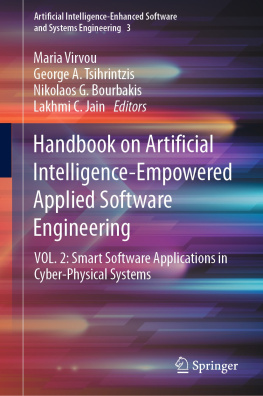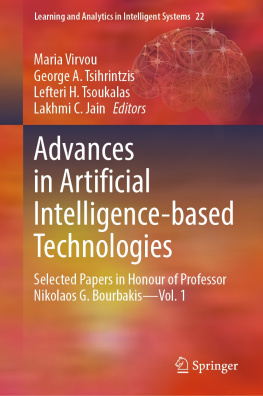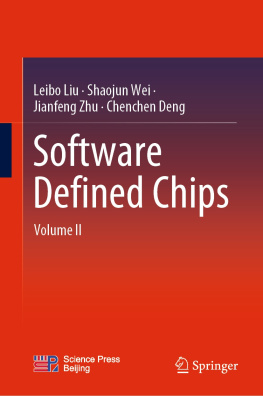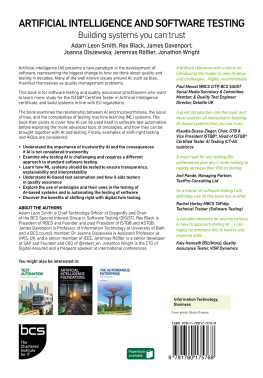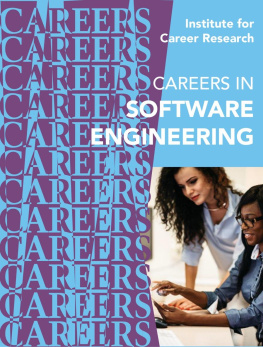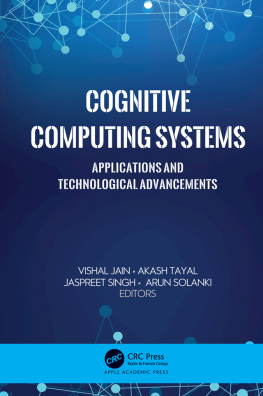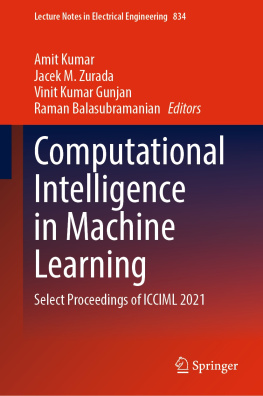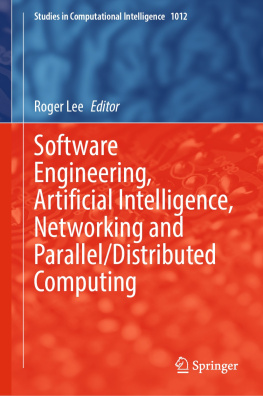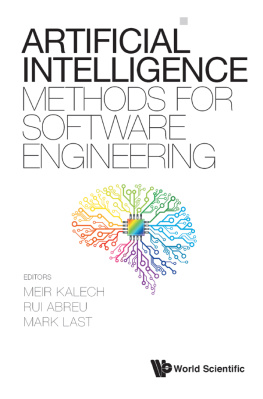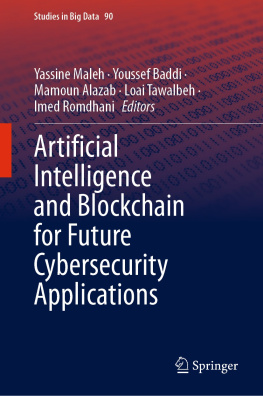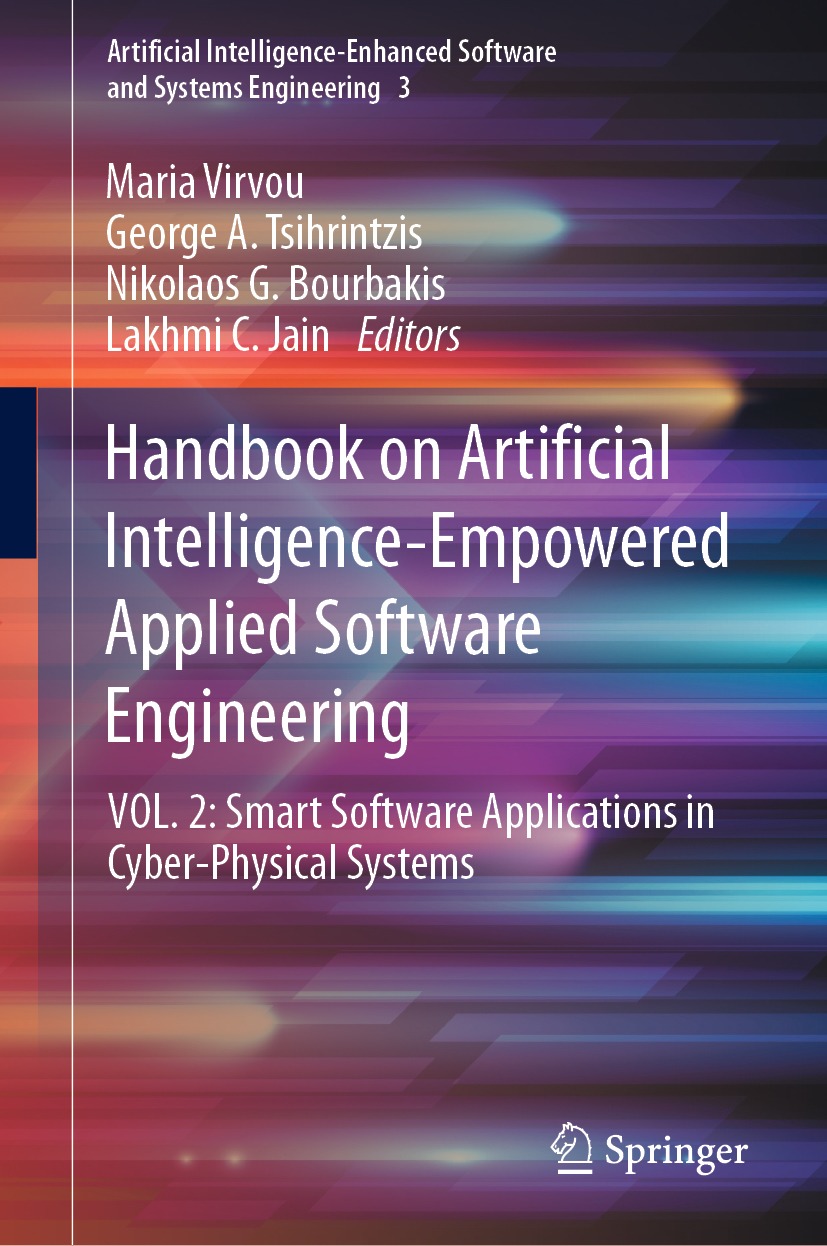Volume 3
Artificial Intelligence-Enhanced Software and Systems Engineering
Series Editors
Maria Virvou
Department of Informatics, University of Piraeus, Piraeus, Greece
George A. Tsihrintzis
Department of Informatics, University of Piraeus, Piraeus, Greece
Nikolaos G. Bourbakis
College of Engineering and Computer Science, Wright State University, Dayton, USA
Lakhmi C. Jain
KES International, Shoreham-by-Sea, UK
The book series AI-SSE publishes new developments and advances on all aspects of Artificial Intelligence-enhanced Software and Systems Engineeringquickly and with a high quality. The series provides a concise coverage of the particular topics from both the vantage point of a newcomer and that of a highly specialized researcher in these scientific disciplines, which results in a significant cross-fertilization and research dissemination. To maximize dissemination of research results and knowledge in these disciplines, the series will publish edited books, monographs, handbooks, textbooks and conference proceedings. Of particular value to both the contributors and the readership are the short publication timeframe and the world-wide distribution, which enable both wide and rapid dissemination of research output.
Editors
Maria Virvou , George A. Tsihrintzis , Nikolaos G. Bourbakis and Lakhmi C. Jain
Handbook on Artificial Intelligence-Empowered Applied Software Engineering
VOL. 2: Smart Software Applications in Cyber-Physical Systems

Logo of the publisher
Editors
Maria Virvou
Department of Informatics, University of Piraeus, Piraeus, Greece
George A. Tsihrintzis
Department of Informatics, University of Piraeus, Piraeus, Greece
Nikolaos G. Bourbakis
College of Engineering and Computer Science, Wright State University, Joshi Research, Dayton, OH, USA
Lakhmi C. Jain
KES International, Shoreham-by-Sea, UK
ISSN 2731-6025 e-ISSN 2731-6033
Artificial Intelligence-Enhanced Software and Systems Engineering
ISBN 978-3-031-07649-7 e-ISBN 978-3-031-07650-3
https://doi.org/10.1007/978-3-031-07650-3
The Editor(s) (if applicable) and The Author(s), under exclusive license to Springer Nature Switzerland AG 2022
This work is subject to copyright. All rights are solely and exclusively licensed by the Publisher, whether the whole or part of the material is concerned, specifically the rights of translation, reprinting, reuse of illustrations, recitation, broadcasting, reproduction on microfilms or in any other physical way, and transmission or information storage and retrieval, electronic adaptation, computer software, or by similar or dissimilar methodology now known or hereafter developed.
The use of general descriptive names, registered names, trademarks, service marks, etc. in this publication does not imply, even in the absence of a specific statement, that such names are exempt from the relevant protective laws and regulations and therefore free for general use.
The publisher, the authors, and the editors are safe to assume that the advice and information in this book are believed to be true and accurate at the date of publication. Neither the publisher nor the authors or the editors give a warranty, expressed or implied, with respect to the material contained herein or for any errors or omissions that may have been made. The publisher remains neutral with regard to jurisdictional claims in published maps and institutional affiliations.
This Springer imprint is published by the registered company Springer Nature Switzerland AG
The registered company address is: Gewerbestrasse 11, 6330 Cham, Switzerland
Foreword
Artificial Intelligence is defining a new era in human civilization, shaping a new, human-centred society (Society 5.0) in which cyberspace (virtual space) and physical space (real space) are highly integrated [1, 2]. The main characteristic of this era is that huge amounts of data, collected from a variety of sensors, are stored and automatically analysed without human intervention and via intelligent algorithms and software which far exceed human capabilities. The consequence is a strong interconnection between humans, devices and services in literally all aspects of professional, social and everyday life, which was never previously seen and is continuously becoming ever more complex.
Certainly, this interconnection between humans and artificial intelligence comes with significant risks. In [3], a warning is issued that Artificial Intelligence (AI) is not an ongoing or imminent global catastrophic risk. Nor is it as uncontroversially a serious cause for concern. However, from a long term perspective, the development of general artificial intelligence, exceeding that of the human brain, can be seen as one of the main challenges to the future of humanity (arguably, even as the main challenge).
Despite the risks associated with the rapid development of Artificial Intelligence, almost every aspect of society is expected to benefit from it, including economic development, combatting famine, poverty and inequality, improved healthcare, advanced assistive technologies for people in need, efficient energy production and distribution, disaster prevention and intelligent applications in manufacturing and industry.
These advances come from the pressure imposed on researchers worldwide to insert Artificial Intelligence enhancements into software and/or empower software with Artificial Intelligence as a result of technological advancements, such as the Internet of Things, big data collected with a variety of sensors or smartphone and mobile software applications. Thus, a new multi-disciplinary research area has been emerging over the recent past, which is expected to have a significant impact on society.
Professors Maria Virvou, George A. Tsihrintzis, Nikolaos G. Bourbakis and Lakhmi C. Jain have identified the lacuna in an appropriate, high-impact forum to publish related research and disseminate corresponding knowledge as it accumulates. Thus, they initiated a new Springer series under the title ARTIFICIAL INTELLIGENCE-ENHANCED SOFTWARE AND SYSTEMS ENGINEERING. As they state, The book series AI-SSE publishes new developments and advances on all aspects of Artificial Intelligence-enhanced Software and Systems Engineeringquickly and with a high quality. The series provides a concise coverage of the particular topics from both the vantage point of a newcomer and that of a highly specialized researcher in these scientific disciplines, which results in a significant cross-fertilization and research dissemination. To maximize dissemination of research results and knowledge in these disciplines, the series will publish edited books, monographs, handbooks, textbooks and conference proceedings. Of particular value to both the contributors and the readership are the short publication timeframe and the world-wide distribution, which enable both wide and rapid dissemination of research output [4].
In more specificity, the new series will focus on the following:

